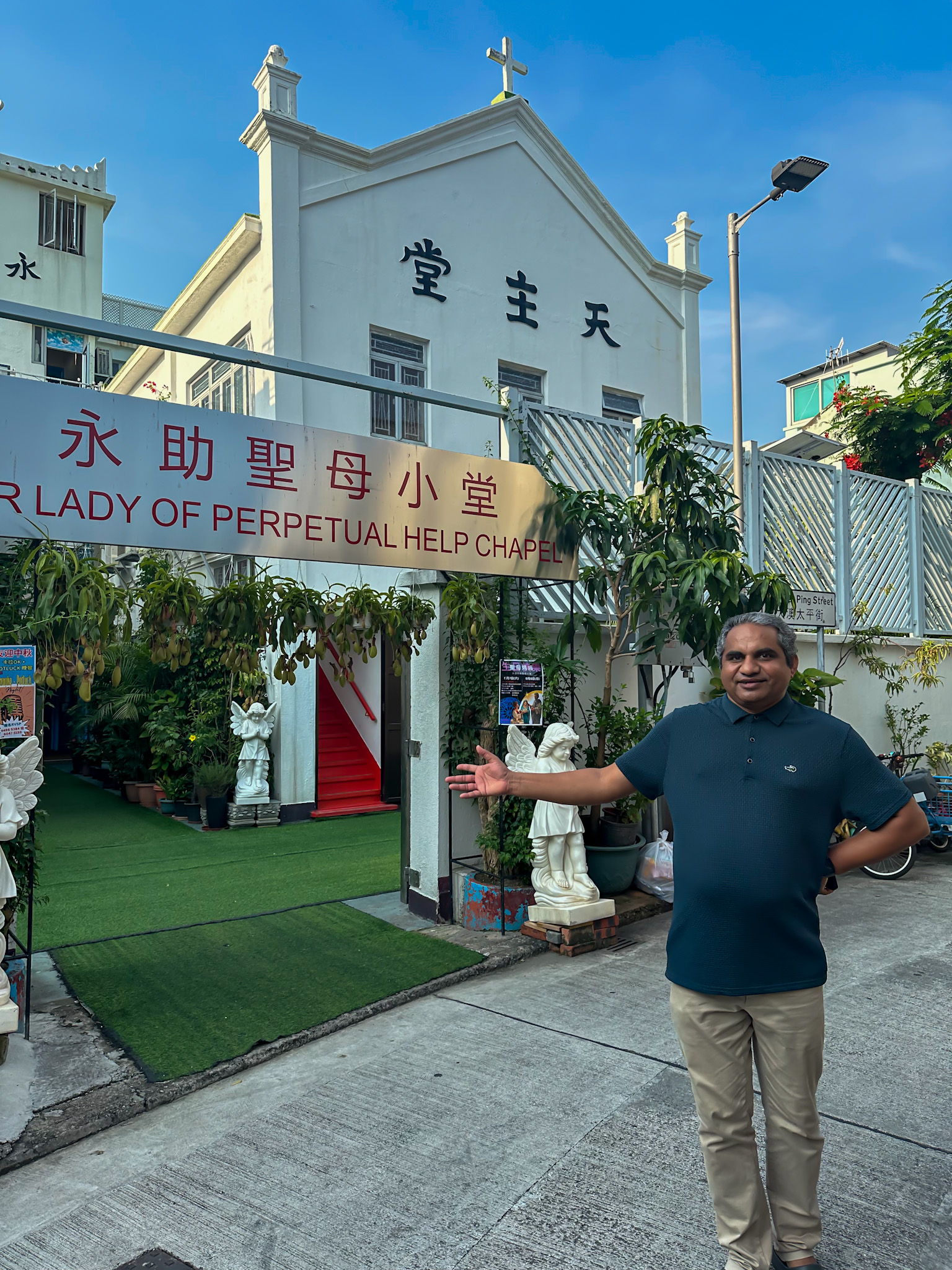Fr. Eduardo Emilio Aguero, SCJ
Gospel Reflection – Mk 9:38-48
26th Sunday in Ordinary Time – Year B
Two weeks ago, I had a deep and meaningful experience in the small fishing village of Tai-O in Lantau Island, Hong Kong. Fr. Jojo had long ago invited me to visit him in his mission station in that small village. As I arrived there by bus from Mui Wo, Fr. Jojo was waiting for me at the bus station and we walked together to the Our Lady of Perpetual Help Chapel. I was impressed to see that everybody we met on our way was greeting Fr. Jojo with a big smile. They were mostly elderly people. Few young people are remaining in this old village.
Fr. Jojo arrived in this town just before the pandemic. During the following three difficult years, he opened the doors of his chapel to the local people of which there were virtually no Catholics; only some Filipino women workers and two or three locals. He organized activities for the elderly and offered food and a space for them to stay and share their lives. It’s heartwarming to witness how he has opened his heart and his convent to everyone, regardless of their faith, and created a space for connection and support, especially during such challenging times.
Fr. Jojo has the gift of recognizing and welcoming the gifts of the local people regardless of their religious beliefs. In his four years of missionary presence, he befriended the people of Tai-O and was able to catechize and baptize seven persons. Fr. Jojo’s dedication and the way he has integrated into the community is truly inspiring as it is not easy for these traditional folks to accept outsiders, let alone to welcome them into their homes and enter their space.
Today’s readings challenge us to have an open mind and heart to see the gifts and goodness of other people who may not belong to our community or our Catholic Church.
In the first reading, Moses admonishes Joshua, because he asked him to stop two men who were prophesying in the camp who were not in the gathering when the seventy elders received the Spirit of the Lord. Jealousy and rigidity don’t allow him to see the gift of prophecy in people outside his group. That happens often in our communities when we get stuck to our own ways and traditions and close our hearts to spiritual and community renewal. The Church is a prophetic community and the Spirit gives rise to multi-form gifts for the sake of its mission: to bring the good news of salvation to all the corners of the world.
Jesus goes further to notice the faith of persons even outside of the chosen people of Israel. He said of the Roman Centurion: “Truly I tell you, in no one in Israel have I found such faith” (Matthew 8:10). He rebukes the apostle John who asked Him to stop a man, who “does not follow” them, from driving out demons in Jesus’ name. Jesus’ response was brief and strong: “Whoever is not against us is for us”.
Jesus didn’t come to divide but to reconcile, to unite, to gather all people of good will. In his homily in Singapore, Pope Francis thanked the Lord for the Church in Singapore, a Church he said, “rich in gifts, a Church that is vibrant, growing and engaged in constructive dialogue with the various other Confessions and Religions with which it shares this wonderful land”. Then he added, “If there is anything good that exists and endures in this world, it is only because, in innumerable situations, love has prevailed over hate, solidarity over indifference, generosity over selfishness.”
My dear friend Fr. Jojo, a Claretian missionary, is a living example of the capacity to recognize and value the gifts and goodness in others, even if they come from different backgrounds or beliefs. Like Moses and Jesus, he highlights the need for openness and inclusivity in our communities to welcome everybody, particularly the lonely, the needy, and those not considered important in our achievement and success-hungry society.
What about us? How do we deal with the different gifts people have in our community? Are we able to integrate them for the growth of our Christian life? Even in our families, parents are challenged to recognize and foster the talents and gifts of their children. Even if a son or a daughter doesn’t have very good grades at school, they might be loving, caring, concerned, or are very good at some art or sport.
What about the gifts and good works of those who don’t share our faith? Do we recognize, appreciate, and welcome them? Can we work together with them, at our office, school, or place of work for the sake of communion, reconciliation, and the common good?


 Follow
Follow


